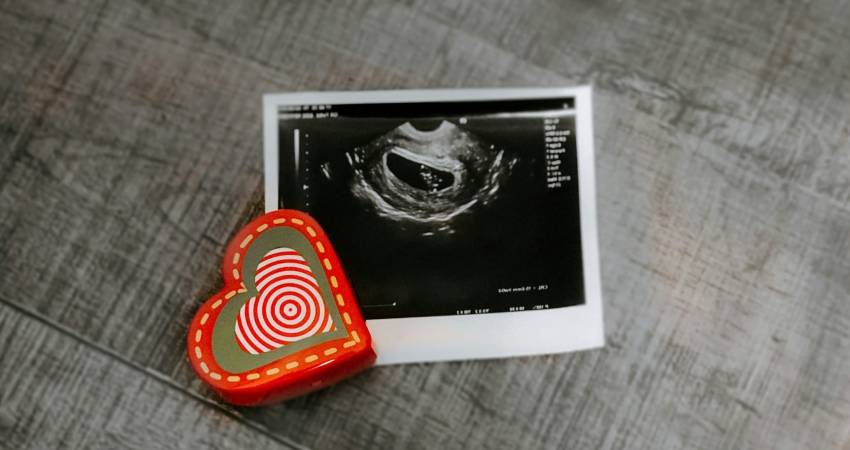
Georgia heartbeat law temporarily reinstated after Superior Court Judge overturned it
Image credit: Viviana Rishe via Unsplash
The heartbeat law in Georgia has been temporarily reinstated by Georgia’s Supreme Court, whilst they consider an appeal against a Superior Court Judge’s decision to overturn the law.
Georgia’s Living Infants Fairness and Equality (LIFE) Act, also known as the heartbeat law, which came into effect after the overturning of Roe v Wade, bans abortion after a heartbeat is detected, which is usually around 6 weeks gestation. However, the law does allow for a few exceptions, including rape, incest, a medical emergency, or if doctors believe the baby would not survive outside the womb.
Last week, on Monday 30th September, Robert McBurney, a Superior Court Judge for Fulton County in Georgia, overturned the heartbeat law, claiming that the law is “unconstitutional”, saying that the state’s constitution that refers to “protections for liberty and privacy” include a woman’s “right to abortion”. This is the second time Mr McBurney has blocked the heartbeat law claiming it was “unconstitutional”, with the first being in Autumn 2022, where it was later reinstated in November that year by Georgia’s Supreme Court.
CNA reported that Mr McBurney wrote that the definition of liberty includes “the power of a woman to control her own body, to decide what happens to it and in it, and to reject state interference with her health care choices.”
The overturning of the heartbeat law meant that abortions was then legal until 22 weeks gestation, with Judge McBurney saying that the state may intervene when the unborn child reaches viability.
The Catholic Bishops of Georgia said in a statement shared with CNA that the “ruling to overturn Georgia’s abortion ban represents a terrible step backwards in our never-ending efforts to recognize and respect the inherent dignity of every life.”
“How many tiny lives will be extinguished while lawyers appeal and lawmakers debate?” they asked.
Georgia Attorney General Chris Carr immediately filed for an appeal on the decision, and also filed an emergency motion to allow for the heartbeat law to be reinstated whilst the appeal was being considered by the Supreme Court in Georgia.
“There is nothing legally private about ending the life of an unborn child,” the state said in its court filing.
The Supreme Court in Georgia have reinstated the heartbeat law this past Monday, whilst it considers the appeal against the decision to overturn the law, a move that has been praised by the pro-life movement.
Clare Barlett, the executive director of the pro-life advocacy group Georgia Life Alliance, spoke on the decision saying “there’s no there’s no right to privacy in the abortion process because there’s another individual involved,” adding, “It goes back to protecting those who are the most vulnerable and can’t speak for themselves.”
She also told CNA that she expects the Supreme Court to uphold the LIFE act.
“From the very beginning, the LIFE Act sought to strike a careful balance of recognizing the difficult circumstances women find themselves in with the basic right to life of a unique, living unborn child,” she said.
Recently the pro-abortion lobby, including Vice President and Democratic Presidential nominee Kamala Harris attempted to claim that Georgia’s abortion ban is harmful to woman after the tragic cases of two Georgia women who died following a failed chemical abortion came to light. However, pro-lifers were quick to combat this misinformation, highlighting that it was the failure to provide timely treatment following the failed “safe” abortions that led to the tragic loss of these two mothers.
Sandra Parda of the Life Institute commented saying: “Bravo to the pro-life community in Georgia for their continuous fight to keep the heartbeat law in place, which can save so many unborn babies from abortion. We as a pro-life community must keep on fighting until our laws values and protects the lives of every single human being from the moment their life begins, which is at conception.”
Featured
- Campaign to stop EU funding out of state abortions - tell your EU commissioner to vote NO
- Judge recuses himself from case of woman praying in censorship zones for “apparent bias”
- I’m a Celebrity star criticises “sad” UK law that aborts babies with Down Syndrome up to birth
- British actress speaks out on “serious risk” assisted suicide bill has for those with eating disorders
- Caplan’s “Tragic Hysteria of Abortion” discusses the flaws with mainstream Turnaway Study interpretations
- Backlash as Scotland report proposes legalising sex-selective abortion up to birth
- Canada hits new record as 1 in 20 deaths a result of Euthanasia
- Ben Scallan defends pro-life on TV show Dinner with the Enemy
- Influencers share the loss of their beloved unborn baby
- Dublin woman with cancer says unborn child was sent to save her
- Mother and baby doing well after surgery for mother’s cancer during pregnancy
- Josiah: Abortion Survivor
- Loving the Unborn
- Rally for Life 2025
- Don't assist Suicide 2024
You can make a difference.
DONATE TODAY